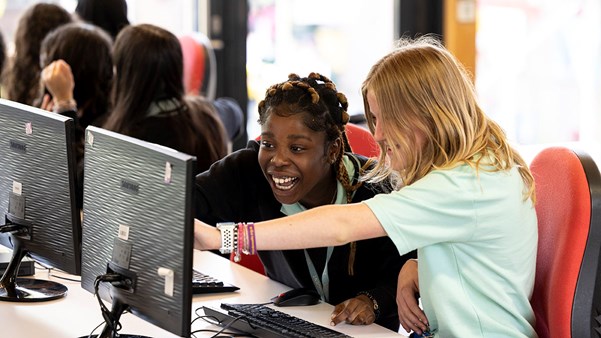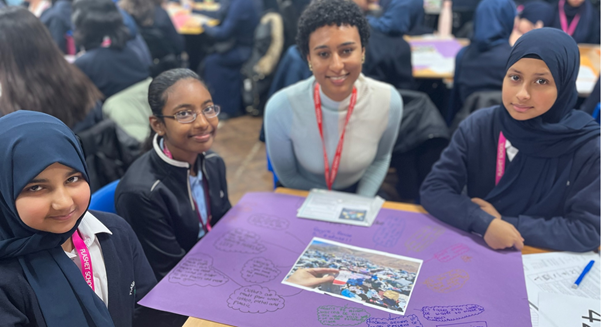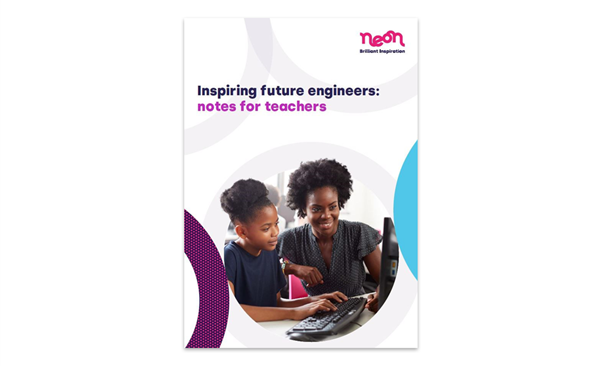Meet young people where they are at with a focus on climate action. In Coding for Climate Action, young people find out more about natural hazards and how they can be mitigated through the development of low-cost early warning systems.
Using programming concepts such as sequence, selection and iteration, they work in pairs to prototype a solution to a global and local climate challenge. They achieve this through using radio transmission between two micro:bits and consider important design factors such as accessibility.
They identify how careers in Computing and Engineering can lead to using technology for good and saving lives of other young people in developing countries.
During this workshop, the pupils work in small teams and develop their problem-solving skills through pair programming and collaborative communication.
Workshops are available for KS2 and KS3 pupils. At KS3, the workshop is best suited to students in Years 7 and 8. See here for the KS2 workshop.
Key information
- Capacity: 12 to 30 students per class.
- This workshop is free for schools in the following areas: Birmingham, Swindon, Reading, West Berkshire, Oxfordshire, Leeds, Devon, Portsmouth, Essex, Kent, Cardiff, Swansea.
- Outside of these areas, the cost is £600 for a full day delivery with two classes or £400 for a half day with one class. Bursaries are available to apply for - see the DIGIT website for more details.
- The charity can, depending on location, bring along micro:bits and Chromebooks if required by schools that don't have access to these resources.




